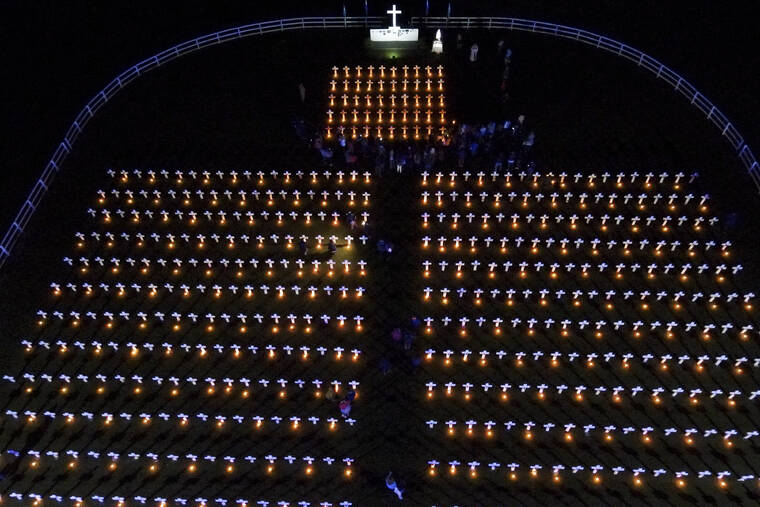Argentines mourn Falklands fallen on war’s anniversary
President Alberto Fernández reiterated Argentina’s claim to the Falklands Islands while commemorating the troops who fell in a failed attempt to reclaim them in a war with Great Britain that started 40 years ago Saturday.
“The Malvinas were, are and will be Argentine,” the president said, using the Spanish term for the South Atlantic archipelago, during a Saturday ceremony in which he awarded medals to 15 combat veterans.
He urged Britain “to abandon its unjustified and disproportionate military presence on these islands, which does nothing more than bring tension to a region characterized by being a zone of peace and international cooperation.”
Britain and Argentina had been in longstanding negotiations over the status of the islands when the South American nation’s military dictatorship launched an invasion on April 2, 1982, hoping to bolster its position at home.
Instead, Britain rallied in defense and recaptured the distant islands, prompting the discredited military regime to finally relinquish power a year later.
The conflict took the lives of 649 Argentines — many of them raw or ill-equipped soldiers — and 255 British soldiers.
The government has declared 2022 a year of “homage to the fallen” and has continued efforts, working with the islands’ government and the Red Cross, to identify the remains of those who died and were buried there.
Argentina claims Britain has illegally occupied the islands since 1833. Britain disputes that and says Argentina is ignoring the wishes of the 3,000 residents who wish to remain British. It contends that the Falklands are now a self-governing overseas territory rather than a colony.
No other active Latin American heads of state attended Saturday’s ceremony at the Malinas Museum in Buenos Aires, though former left-leaning Presidents Evo Morales of Bolivia, Fernando Lugo of Paraguay and Pepe Mujica of Uruguay were on hand.
It was one of many commemorations and demonstrations around the country, including a protest march through the center of the capital to the British Embassy and a vigil with a field of candlelit crosses in the city of Pilar late Friday night.
While the two nations have made continued efforts in recent years to improve relations, there is still resentment at British control of the islands and anger at the military leaders who started the fight.
Youths of “16, 17, 18 went to fight in the Malvinas in context totally without resources, without anything, against the English, a world power,” said neighborhood activist Agustina Scaronne, who took part in the protest march. “It seems to me they are part of our history and our identity.”

